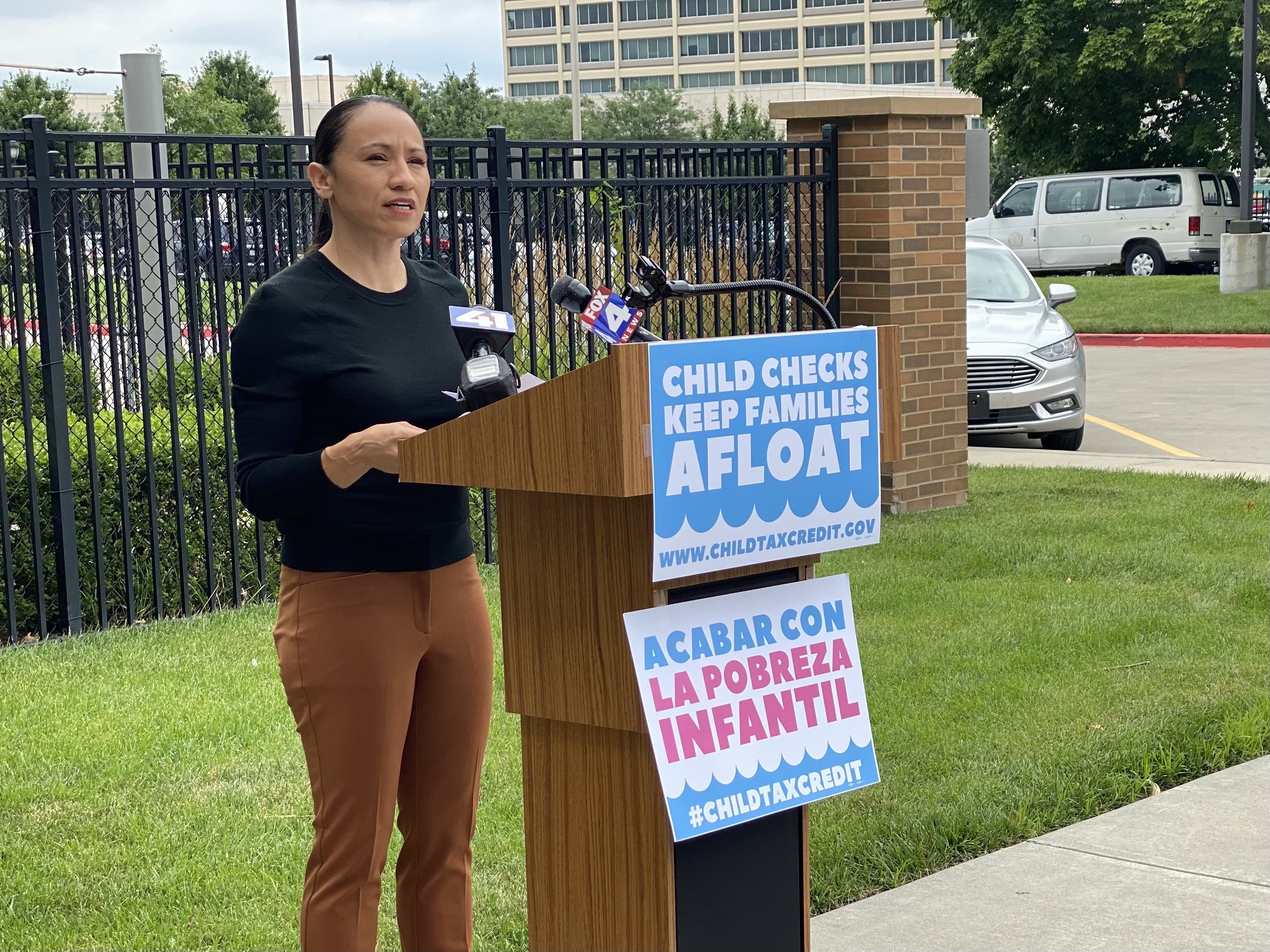
- Details
- By Native News Online Staff
KANSAS CITY, Kan. — Rep. Sharice Davids (D-KS) held a press conference on Monday to explain the expanded Child Tax Credit. New monthly payments begin reaching families’ bank accounts on Thursday.
Davids, a tribal citizen of the Ho-Chunk Nation, voted in support of the American Rescue Plan, which expanded and improved the Child Tax Credit to provide more relief to more families through monthly advance payments of up to $300 per child. In a report released last month.
Want more Native News? Get the free daily newsletter today.
As the IRS begins to send out monthly payments starting July 15, it is important that eligible families have all the information needed to receive this benefit.
“After the pandemic devastated both the health of our communities and the stability of our economy, the expanded Child Tax Credit offers a lifeline to families who are trying to get back on their feet,” Davids said. “It’s critical that families have the information they need to access this tax cut and start to return to a sense of normal after a year of uncertainty.”
The IRS recently launched three new online tools designed to help families manage and monitor their advance monthly payments from the Child Tax Credit:
- The Child Tax Credit Eligibility Assistant which helps families determine whether they qualify for Child Tax Credit payments.
- The Update Portal which helps families monitor and manage Child Tax Credit payments. The portal is a secure tool available to any eligible family, and will be where filers can let the IRS know of any changes in their income, address, or family status.
- The Non-filer Sign-up Tool which helps families not normally required to file an income tax return to quickly register for the Child Tax Credit.
More information on the Child Tax Credit (CTC):
The American Rescue Plan expanded the CTC to up to $3,600 per child for children ages 0 to 5 and $3,000 per child for children ages 6 to 17. In addition, it authorized advance monthly payments for eligible families (as opposed to a lump sum payment). Beginning this week and running through December, qualifying families can get up to:
- $300 a month per child for children ages 0 to 5.
- $250 a month per child for children ages 6 to 17.
Families will qualify for a full credit if their income is below $75,000 for single filers, $112,000 for people filing as head of household, or $150,000 for people who are married and filing jointly. To be eligible, children must:
- Have a Social Security number,
- Live with the filer for at least half of the year,
- Be under age 18 as of December 31, 2021, and
- Be claimed on the filer’s tax return.
Children are eligible if they are children, adopted children, stepchildren, half-siblings, foster children, grandchildren, nieces or nephews, or certain other relatives.
More Stories Like This
Native News Weekly (August 25, 2024): D.C. BriefsUS Presidents in Their Own Words Concerning American Indians
Senate Committee on Indian Affairs Passes 12 Bills to Strengthen Tribal Communities
Deb Haaland Tours CNM Workforce Facilities, Highlights Trade Job Opportunities
Federal Court Dismisses Challenge to NY Indigenous Mascot Ban
Help us defend tribal sovereignty.
At Native News Online, our mission is rooted in telling the stories that strengthen sovereignty and uplift Indigenous voices — not just at year’s end, but every single day.
Because of your generosity last year, we were able to keep our reporters on the ground in tribal communities, at national gatherings and in the halls of Congress — covering the issues that matter most to Indian Country: sovereignty, culture, education, health and economic opportunity.
That support sustained us through a tough year in 2025. Now, as we look to the year ahead, we need your help right now to ensure warrior journalism remains strong — reporting that defends tribal sovereignty, amplifies Native truth, and holds power accountable.
 The stakes couldn't be higher. Your support keeps Native voices heard, Native stories told and Native sovereignty defended.
The stakes couldn't be higher. Your support keeps Native voices heard, Native stories told and Native sovereignty defended.
Stand with Warrior Journalism today.
Levi Rickert (Potawatomi), Editor & Publisher

